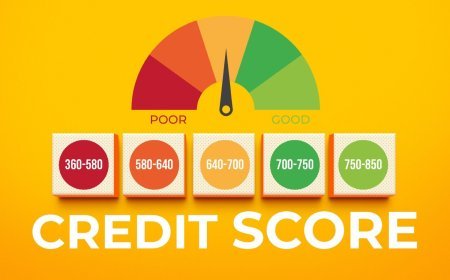How to Avoid Predatory Lending Practices

Predatory lending practices target vulnerable borrowers with deceptive, unfair, or abusive loan terms that benefit lenders at borrowers' expense. Learning to identify these practices and understanding your alternatives can protect you from financial exploitation and long-term debt traps.
Predatory lenders typically target people with poor credit, limited financial knowledge, or urgent financial needs. They exploit desperation by offering quick approval with minimal documentation while obscuring the true costs and risks. Common targets include elderly borrowers, minorities, people with disabilities, and those facing financial emergencies.
Payday loans represent one of the most common predatory products, offering small amounts (typically $300-$500) for short terms with fees equivalent to 400% APR or higher. Borrowers often can't repay when due and roll loans over repeatedly, creating cycles of debt. Auto title loans similarly trap borrowers by using vehicle titles as collateral for high-cost short-term loans.
High-cost installment loans marketed to poor credit borrowers often carry rates of 100-200% APR with long terms that maximize total interest paid. These loans may include unnecessary insurance products, prepayment penalties, or balloon payments that make repayment difficult. Some lenders deliberately structure terms to encourage refinancing and additional fees.
Warning signs of predatory lending include pressure to sign immediately without time to review terms, door-to-door or telephone solicitations for loans, requests for unnecessary personal information like Social Security cards or blank checks, and promises of guaranteed approval regardless of credit or income.
Predatory loan terms to avoid include balloon payments where most of the principal comes due at once, prepayment penalties that discourage early repayment, excessive fees that aren't clearly disclosed, adjustable rates that can increase dramatically, and mandatory arbitration clauses that prevent legal action.
Mortgage-related predatory practices include equity stripping where lenders make loans based on home equity rather than ability to repay, loan flipping where borrowers are repeatedly refinanced into higher-cost loans, and packing where unnecessary insurance or services are added to increase loan amounts and profits.
Protect yourself by researching lenders before applying and checking with state regulators, Better Business Bureau, and online reviews. Get multiple quotes to compare terms and identify outliers. Read all loan documents carefully and ask questions about anything you don't understand. Never sign blank documents or agreements with missing information.
Legitimate alternatives to predatory loans include credit union personal loans, which often offer reasonable rates even for poor credit borrowers. Many credit unions have special programs for members facing financial difficulties. Bank personal loans, while requiring better credit, provide transparent terms and regulatory oversight.
Employee assistance programs, family loans, or advance payment arrangements with employers can provide emergency funds without high costs. Some employers offer payroll advances or emergency hardship funds for employees facing temporary financial difficulties.
Credit counseling agencies offer debt management plans that can reduce interest rates and payments on existing debts. Nonprofit agencies provide free consultations and charge minimal fees for ongoing services. They can help you avoid additional borrowing while addressing existing debt problems.
Government and nonprofit assistance programs provide alternatives for specific needs. LIHEAP helps with utility bills, SNAP assists with food costs, and Medicaid covers healthcare expenses. These programs address root causes of financial stress rather than adding debt burdens.
If you've already fallen victim to predatory lending, you have rights and options. Contact your state attorney general's office to file complaints against illegal practices. Some predatory loans violate state usury laws or federal truth-in-lending requirements. Legal aid organizations often provide free assistance for predatory lending victims.
Document all interactions with predatory lenders including loan documents, payment records, and communications. This documentation helps if you need to file complaints or take legal action. Consider consulting with attorneys who specialize in consumer protection or debt issues.
Build financial resilience to avoid future vulnerability to predatory lenders. Establish emergency savings even if small amounts, improve credit scores through responsible payment history, and develop relationships with legitimate financial institutions like credit unions or community banks.
Educate yourself about personal finance through reputable sources like nonprofit credit counseling agencies, government websites, and established financial education organizations. Knowledge about budgeting, credit, and debt management helps you recognize and avoid predatory offers while making better financial decisions overall.
What's Your Reaction?
 Like
0
Like
0
 Dislike
0
Dislike
0
 Love
0
Love
0
 Funny
0
Funny
0
 Angry
0
Angry
0
 Sad
0
Sad
0
 Wow
0
Wow
0









































